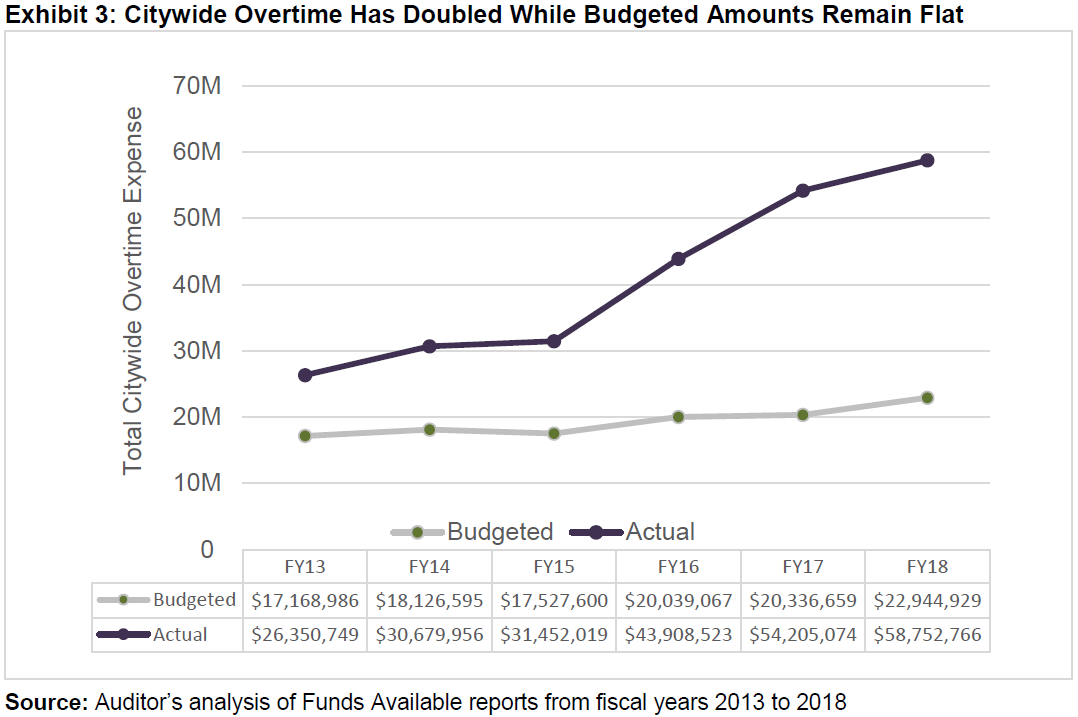citywide overtime - february 2019
|
Citywide Overtime
Released February 2019 Download the Full Report here Download the Report Highlights here We undertook this audit because the city spent $54.2 million on overtime in fiscal year 2017, double what it spent in fiscal year 2013. We focused on patterns in overtime spending by department and employee and examined controls over the use and distribution of overtime. We completed an interim memorandum for this audit in May, in response to a request from City Council's chair of the Finance/Executive Committee for use during budget deliberations. The results of that memo are incorporated into this report, and that memo can be found here. |
We found:
- Citywide overtime spending increased each year over the past six years, exceeding $58 million in fiscal year 2018.
- The city does not use historical spending to estimate future overtime, instead relying on position vacancies to cover costs.
- Six departments were responsible for 98% of overtime in fiscal year 2018—the police department accounted for 43% of citywide overtime and fire, watershed management, public works, corrections, and aviation accounted for an additional 55% of overtime.
- The citywide trend in monthly overtime spending from January 2015 to December 2018 does not support the explanation that overtime is driven by special events.
- We did not find a relationship between vacancies and overtime, except in the fire department.
- The police department significantly decreased overtime spending beginning February 2018.
- The Atlanta Police Department paid employees more generous overtime rates than the FLSA (Fair Labor Standards Act) requires—the department pays some officers overtime rates after working 160 hours, rather than after the 171-hour threshold established by the FLSA. The police department also allows leave time to count toward hours worked to reach the overtime threshold.
- The city incorrectly classified the FLSA statuses of 144 employees—24 non-exempt employees were incorrectly classified as exempt and 120 employees were incorrectly classified as non-exempt and were paid almost $1 million in overtime during 2017.

